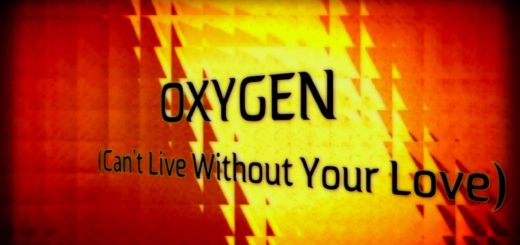Major Dutch newspaper issues call for violence against niqab-wearing women
The Dutch newspaper Algemeen Dagblad on July 31 published an article relating to a new Dutch law that will be implemented today, on August 1. The new law forbids the wearing of face-covering clothes, and applies equally to women who wear a niqab (veil), as to any people who wear balaclavas or integral motor helmets.
However, in one of the last paragraphs of the article, the newspaper opens with a header that says “What can I do myself if I see someone with a niqab?”
What to do when you see a woman wearing niqab?
In the first paragraph after that header, it explains that any civilian has the right under the new law to ask the woman to remove her niqab in places where the law forbids it, or leave the location, and to call the police. So far, not too bad, as this is at least still on a verbal level.

However, the second paragraph specifies that any civilian can perform a citizen’s arrest. It states that the Public Prosecutor’s Office spokesman confirmed this, without providing a name. It also mentions two conditions: that the perpetrator is caught ‘red-handed’, and that the ‘arrested’ person be handed over to the police immediately.
This is when it gets really provocative. The paragraph continues by outlining that the use of force is allowed if the ‘suspect’ tries to get away, for instance by holding the person down to the ground.
‘Use of force allowed’
This statement understandably caused some uproar. It surprised even some citizens who support the new law, to find the newspaper basically calling upon civilians to start ‘arresting’ niqab-wearing women. To put things into perspective numerically, in the Netherlands, which has 17 million inhabitants, the total number of niqab-wearers is around 200.
Dutch police had commented on the issue before, on July 23, that the law provided no support for civilian arrests in the case of such minor violations. However, yesterday, the police apologized for having given wrongful information, and confirmed that such citizen’s arrests are indeed legal.
‘Taken out of context’
A left-wing online outlet, Joop, covered the controversy. It contains a quote from Hans Nijenhuis, editor-in-chief of the newspaper. He states that distributed screenshots misrepresent the post by taking the paragraph out of its context, and that it is a misunderstanding.

There isn’t much to misunderstand, really. First of all, while the law generalizes all forms of facial covering, the paragraph in question deals specifically only with women wearing niqabs. It refers to the subjects as “she”, and mentions only the niqab (referred to in the Netherlands as ‘boerka’) as its topic.
Furthermore, if the intention of the newspaper had been only to inform the public, they could have left out the entire paragraph of “what can i do myself when I see someone with a niqab”. Deliberately including it reveals the intention of inviting the public to take action. That header would have referred to face-covering in general, if it wasn’t meant to incite hatred, instead of singling out the niqab in relation to citizen’s arrests. If it wasn’t meant to incite violence, the part where it specifies that force can be applied when performing a civilian arrest, would not have been included.
Smack down anyone who uses a mobile phone while biking?
We can only speculate about the true intentions of the newspaper. The response of the editor-in-chief is evasive and unsatisfying. Was this newspaper aiming to increase sales by publishing a provocative article? Was it actually trying to fan the flames of Islamophobia, which is already rampant in the Netherlands?
It will be difficult to obtain reliable answers to these questions. What remains, is that calls for civilian arrests were never issued in newspapers before when introducing other new laws, such as those restricting smoking to certain spaces, or using mobile phones in traffic, or riding the bicycle without your lights on.

This is why it surprised many Dutch citizens to learn that Dutch law apparently gives ample space for grabbing your fellow citizen, pushing them to the ground, and calling the police, even for minor transgressions.
Rampant Islamophobia in the Netherlands
Keeping in mind that citizen’s arrests are a hitherto practically unknown occurrence in the streets of the Netherlands, the burden of suspicion remains on the Algemeen Dagblad for only bringing that up at the time of the implementation of a new regulation outlawing face-covering, and specifying these instructions only for women wearing niqab.
It’s a fact that hatred of Islam is widespread in the Netherlands. The popularity of Islamophobic politicians like Geert Wilders (PVV) and Thierry Baudet (FvD) speaks for itself, in that respect. The Dutch blogosphere is rife with Islam-hating posts, and Twitter never ceases to be buzzing with anti-muslim trolls. It’s a recognized fact that Muslims in the Netherlands face severe difficulties in the job market, and that they regularly face expressions of hatred in their daily lives.
It is perfectly reasonable to fear that some Islam-hating Dutch citizens will see the call issued by the AD as a green light to start attacking niqab-wearing women. All we can do, is hope that things won’t get out of hand more than they already have.




Recent Comments